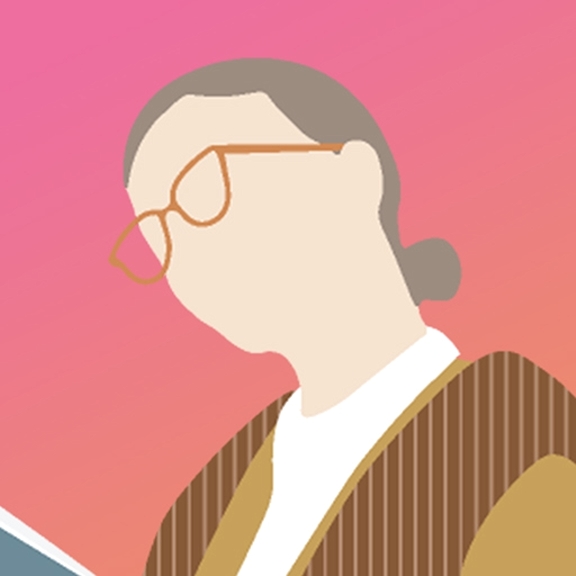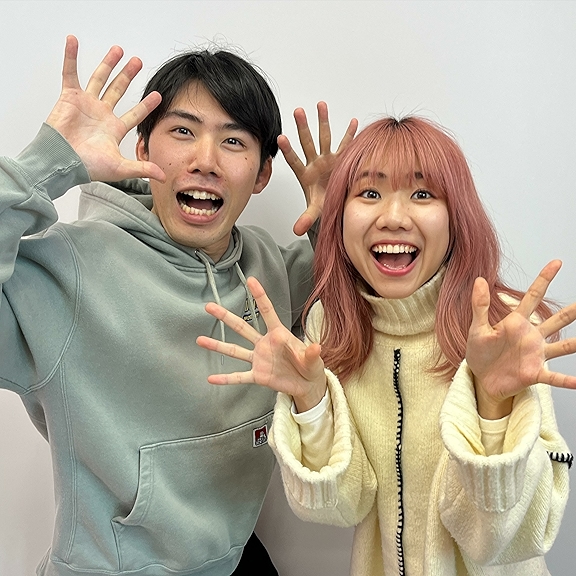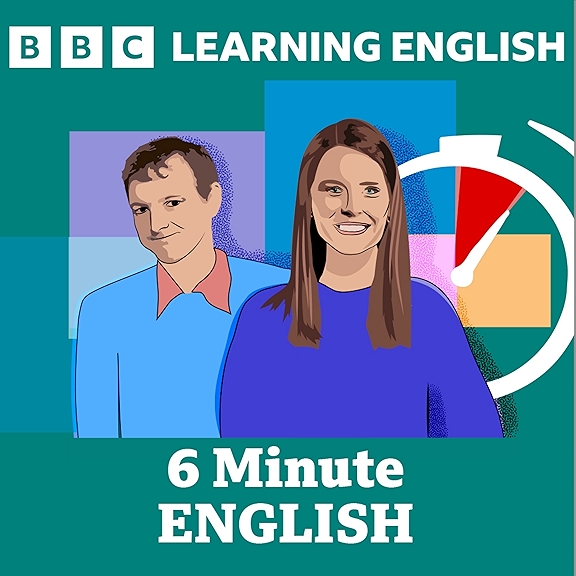
A Discussion of Instructional Apps with Zafer Elcik of Otsimo
Zafer Elcik - Otsimo
The following is the written transcript of the audio recording of my interview of Zafer Elcik of Otsimo, which you can listen to in the podcast version of this post. This transcription was aided by Otter.
SPEAKERS
Anne Zachry, Zafer Elcik
Anne Zachry
Thank you so much for being in this podcast with me today. I really, truly appreciate you making the time, especially since we're having to accommodate international time zones, and I'm here in the United States and you're in Turkey. If you don't mind, could you just go ahead and give us just a brief introduction of yourself and your product?
Zafer Elcik
Thank you for taking the time to talk with me. My name is Zafer. I am co-founder of Otsimo. At Otsimo, we are developing apps for kids with special needs, mostly for autism, Down Syndrome, and mental challenge. What we are trying to do is to provide early intensive education to the mobile devices and the speech therapy, as well. I have a brother with autism. He has been vulnerable for a long time. And I realized that he has special interest in smart devices one day, but I couldn't find any suites or apps for my brother. The typical apps have a lot of advertisements, as well as, like, they have a lot of sounds, animations, and so on, and my brother actually liked to play with them, but he ended up with a bad situation. I decided to create app companies just helping kids on the spectrum. Well, right now we have kids all across the US, UK, as well as Turkey. We have already met the Minister of Education of Turkey. We reach education and speech therapy all across the world through the mobile device.
Anne Zachry
That is so cool. That's such a powerful outcome to make happen. That's such an accomplishment. That's so cool.
Zafer Elcik
Thank you.
Anne Zachry
Oh, thank you. So well, one of the things that because we're here in the United States, and we're constantly advocating for kids with special needs to get the services they're supposed to be getting and the supports that they need. And, very definitely, the whole issue of alternative communication methods and kids who have language impairments who can't get their words out, but that doesn't mean they don't have words ... I mean, I've worked for over 30 years with kids with every kind of disability you can imagine, and lots and lots of kids on the autism spectrum with language challenges, but also across all age groups. And, so one of the things I wanted to ask you about - because I did download and install your app and mess around with it, so I could become familiar with it - the graphics and the imagery, and the age ranges that look like on the app max out at like seven and older. And, for my kids on the spectrum who are middle school and high school age or young adult age, they don't see themselves necessarily in the apps, and the tools that are are out there for children who are younger. And, the accommodations they need evolve over time as they get older, and they may still have the language skills of a very young child, but they are still a teenager on the inside. And, so, my question to you was, "Is there ... are there plans to expand the app to have a version that is more grown up and more adult looking and more age appropriate for teens and young adults that will follow them into college?" Because I'm seeing kids who everybody thought they would never go to college. But once they get the help was like "Oh, hey! That's a possibility for you, now ..."
Zafer Elcik
Yeah.
Anne Zachry
... but these tools can't follow them necessarily. And so my question to you is, "Are you looking to expand it to for to make the tool something that will support older users, especially as your kids get older ... your child users?"
Zafer Elcik
Yeah, actually, it's a great question, because my brother is getting older and older. And, we try to test with my brother as well to what the level will be of the new content in the app. Like, at Otsimo, we approach early and intensive education, because, like, you heard a lot of the time that you know it, like, if the kids can get early and intensive education, it affects our ...
Anne Zachry
Right, right. Those are my kids who are now growing up and going to college, who, when we first started when they were four and five years old, that wasn't even a thought. But, now that they're 18, it's like, "Oh my gosh! Look what you can do!", because we got all those services when they were little.
Zafer Elcik
That's because, like, I realized that, in the US, as well as in Turkey - I mean - a lot of countries in the world, because, like, we have a lot of users all across the world, and we realized that, like, getting a diagnosis and, then after that, getting the first education is a really big hassle. Like, in the US, as well, like, you need to go to IEP meetings ...
Anne Zachry
Yep.
Zafer Elcik
... to get what you need, and it's a big hassle and you lose a lot of precious months, sometimes a year, to just getting the education. That's because we, at first, we focused on the, like, really early and intensive skills, like, small hand gestures, or social skills, and so on. But, after that, we really found out that we need to create content for a really diverse community. That's because, like, right now we have more than 100 games, some of them is really easy, some of them is kind of middle school-ish. But we haven't, like, created, like ... I can set it up, like, we ... our apps are at pre-K to K-2, but after K-2, right now, we don't have real content. That's because, right now, we are developing new content every month, just to keep updated. I don't think so we will create content for university or high school and so on, but I believe it's so go we can go to like pre-K to K-8, and so on, in the near future. We will have a lot of content for that.
Anne Zachry
Right. Well, definitely the early intervention is a huge part of it. I mean, that's certainly important. And, you know, my background is also in educational psychology. That's what my master's degree is in. And I can tell you from an instructional design standpoint ... but, also I've worked in IT. I've worked it ... I can do some coding, it's not my greatest skill, but it's not like I don't have any coding skills at all. I understand what it takes to build something from scratch in code. And you want to start with the simpler skills and move into the ... progress into the more complex skills, anyway. You know, that those simpler younger skills are foundational, not only for human beings, but also for technology. So, you build on that not only with the kid, but with the tech over time, I would imagine. So, that totally makes sense.
Zafer Elcik
Yeah. Right now, we are developing these apps for more than five years, and still, I believe that we are in the, like, really beginning.
Anne Zachry
Right.
Zafer Elcik
We have more than 20 people. Like, we have psychologist on team. We have educators, developers, designers, testers. A lot of people lately, designers working with us, and so on. And it takes a lot of ...
Anne Zachry
I can only imagine. I mean, I'm just trying to envision what all the logistics are of making something happen, you know, like what you're doing. And, it's just ... you know, what you're doing is moving the earth. That's huge. And you said something a moment ago that ...
Zafer Elcik
Thank you.
Anne Zachry
Thank you ... that really caught my ear, and that was, you know, the diversity within the autism community. And, we have a saying over here that, "When you've met one person with autism, you've met one person with autism."
Zafer Elcik
Yeah.
Anne Zachry
Because, no two people with autism are alike, you know. Just like everybody else, that no two brains are alike, even if they have a common disorder. And so, how it manifests ... and I've got, you know ... and this goes to my next question is, you know ... I've got situations out here where we have students with IEPs that will say in the IEP that they're supposed to have an AAC device, with hardware and software loaded on it, but they won't specify what they're using. They won't name the device and they won't name the software in the IEP, as though all AAC tech is interchangeable. And, it's not! Each technology is different and nuanced, and every student has to learn that piece of technology as a way to learn language. Like, if you start a kid out on ProLoQuo2Go, and then you move that kid to another school, and they see that, "Oh, well. You've got an an AAC device with some kind of software in your IEP. We have to implement your IEP that you came in with, but we don't know what you were using." And they'll go off and get, you know, a Samsung smart pad with some kind of who-knows-what software installed on it. And it's not the iPad with the ProLoQuo2Go the kid knew how to use from the last school. And so, what happens is their language gets taken away. And so, I guess my question to you then becomes, "If there's other technologies that are going to be used as these children get older, like ProLoQuo2Go, going into the adult world, do you think that it's wise to start them off on something different and then switch them, or does it make more sense to get them accustomed to one piece of technology and have it carry them through, or does it make sense to teach them more than one type of AAC tech so that if one goes out of business, the other one's still around?" I mean, that's my concern. It's about the people in the public schools who tend to think that AAC technology, if they're not specifically trained in it, they think it's plug-and-play, and you can pull one out and push another one in. And, I wonder what your feedback on that what would be.
Zafer Elcik
Yeah, my feedback on that, like, is, we have also AAC solution in our special education app.
Anne Zachry
Right.
Zafer Elcik
We are targeting mostly young children instead of, like, ProLoQuo2Go or other AAC devices as well. And I believe in ... so, like, we need to introduce the AAC to the people and individuals on the spectrum as soon as possible, because, like, we have a lot of research also going on there. AAC actually doesn't have any disadvantages to learning a language. It also have advantages to learning language or concepts of vocabulary, and so on. I believe ... so, we need to, we need to show the AAC in really early stages, because it's helpful for them. And the second thing I need to say: We need to find a way to, like, a different kind of solution. Like, sometimes you need Tobii Dynavox with a eye-tracker device on it ...
Anne Zachry
Right.
Zafer Elcik
... and so on, and sometimes you need also some AT with a light reading cue and open source system with you. I think that, like, the schools doesn't ... like, schools must not mandate an AAC over others. They need to accommodate the diversity, the diversity of different assistive technology. That's because, like, I also came across some schools, like, they're using just one tech and they don't want to change, but it doesn't help anyone. Like, it just helped the teachers, maybe the managers there. It doesn't help the kids and the family. Because I think that, like, teachers also have a lot of goals, as well, because of the ... I don't want to say that, but, like, teachers need to accommodate the diverse kids ...
Anne Zachry
Yeah. Right.
Zafer Elcik
... diverse problems or ... the diverse solutions of the kid, and find a way to use the ... what the kids like, what the individuals like. Because, like, communication is essential, and when you are changing a device, you're actually changing the whole communication system. And, you force them maybe to voiceless.
Anne Zachry
Right.
Zafer Elcik
And that's a huge drawback for diverse communities. That's because, I believe it. So they don't need to see a lot of different AAC, but they need to stick with what they feel comfortable.
Anne Zachry
Right. It's doesn't do any good to teach a kid how to speak using the tool and then take the tool away from them. And...
Zafer Elcik
Yeah.
Anne Zachry
... and that's our concern. And that, again, goes back to how special education is legally regulated here, because you can't just go and change things up once it's written into the IEP. That's a legally binding contract that the parents can hold the school to that says, "Hey, these are the things you're supposed to do for my kid." But if the contract itself is flawed, if the what it describes in writing is not appropriate, then that's what's enforceable. And, what we run into is ... Yes, I agree with you that you have way too many school districts that will standardize on a particular technology, because they get bulk discounts. If they buy in bulk from the vendor, they get it less per unit.
Zafer Elcik
Yeah.
Anne Zachry
And so, it's cheaper to get multiple licenses of a particular AAC and a particular device because they can buy those in bulk, because all of these vendors have realized that they can sell more in quantity to the schools if they can convince them that their technology will solve all these problems. And, for a lot of kids it will, but you have to specify what it is in the IEP. Because, if a kid has started out, say, on your technology and it's part of what's being done in the classroom, if it's not written into the IEP, and that child moves to another area, and that IEP has to follow them to the new school, but it doesn't say in there ... that they were using your technology, the new schools not going to know to put that in. And so, what we run into is sort of a mixture of too vague of a description of the accommodation, as well as what you were talking about, what is sometimes is over-specified to the point where there's no flexibility to try anything new.
Zafer Elcik
Yeah ... Yeah.
Anne Zachry
So, you don't ... you have to strike a balance where there's enough flexibility with the way the document is constructed that trying out new technologies is not prohibited, but what the child is familiar with is also not taken away. And so, it comes down to the wording of the document. And I think that that's something that a lot of solution developers find frustrating when they enter into the American special education system because they're thinking, "Oh, America loves special ed! They actually have laws and they make it free and they do all this stuff!" But, when you actually try to participate in it, it looks a lot different to live through it than it looks like on paper. Yes, there's an embracing of it. But there's also all of these rules that get in the way of actually doing something about it, sometimes. And so, sometimes the rules are there to help, and sometimes they get in the way. And I think that, especially as an international developer, for you coming in to try and insert your product into that kind of situation and have been successful, that's enormous. Because that's not an easy thing for anybody to do. And for you to come from outside of the country, and insert yourself into such a heavily regulated situation, with a solution that people are actually adapting and accepting and using, I think that's huge. So that's ... congratulations on that. That's enormous.
Zafer Elcik
Actually, like, the system in the U.S. is changing by state-by-state. And that's because like, maybe it's district-by-district.
Anne Zachry
Yeah.
Zafer Elcik
You are right. They're involved in that kind of stuff. We here are actually trying to be a company like family-friendly, or special individual-friendly. What we try to provide is an additional value. Like, they can pick what they want. Mostly ... most of the other companies, like there are big corporations in the U.S., like, they are selling bulk, but they don't update the software for a long time or doing anything like that, specifically.
Anne Zachry
That's true. Right.
Zafer Elcik
That's because, like ... and also, some states and district doesn't ... they need to cover by IEP by law, but they have a lot of that system. That's because kids couldn't reach out for, like, the AAC they need.
Anne Zachry
Right.
Zafer Elcik
That's because we try to find a way to be an affordable and accessible solution for all families, instead of, like, binding the districts or states to just forcing them into one single product. But, you are also right. On the other side, if the kids started some sort of specific AAC, I think, I believe it, so they need to follow the same system in the other schools or other districts because, like, they learn how to communicate through that. Like, it's something like you learn in English in one nursery; while you carry on your school, you need to ... you're forced to talk in French and ...
Anne Zachry
Right.
Zafer Elcik
... it's impossible for you to actually ... it's something like that.
Anne Zachry
I agree.
Zafer Elcik
... take a special tech from their hand just because of the bulk discount or so, but it doesn't help anyone.
Anne Zachry
Right.
Zafer Elcik
It's helping the ... maybe the district managers and so on.
Anne Zachry
Exactly. And that's a lot of what we run into is ... we run into administrators who spend zero time in the classroom, who are business office people making decisions that affect the classroom based on finances, which is illegal, but it happens all the time, because they don't know any better. They don't realize their decisions are going to have that big of an impact on a kid. They're not even thinking about that because their business office people. And so, that's I think it's ... we're running into an issue over here with respect to how the bureaucracy is organized. It was created during the Industrial Revolution and emulates a factory. And, even though modern business technology has evolved well beyond that, public education technology has not. Public agency technology has not. The public sector, our government agencies, are decades behind technologically speaking, which I'm sure you've encountered with all of their different business systems ...
Zafer Elcik
Yeah, yeah.
Anne Zachry
... and things and accounting systems and was like, none of them are running the same operating system. None of them are running the same software. So, it's a highly disparate situation. And it kind of reminds me when I was working in IT years ago, around the, like, the late 1990s, early 2000s. I went through that whole Y2K thing ... and ... when I was working in IT. And, at the time, the customers that I had for the company I worked with were mostly in the freight forwarding business. And, it was when U.S. Customs was switching to paperless. And, my goodness! The pandemonium and chaos that broke out amongst all of the people who handle paperwork for shipping goods back and forth overseas. I mean, this was all a paper driven processing, and now Customs wanted to go paperless, and it was something. And, nobody had the same operating system. Nobody had the same software. But, everybody's stuff was somehow supposed to magically talk to U.S. Customs electronically. And, making that all come together over the span of like five to seven years was outrageous. But at the same time, I see that now happening in public education where we're finally starting to reach that place where we're just going to have to deal with it in do the upgrades. And, I think that once the upgrades get done, and we get to a more cohesive modern system, that it'll be a lot easier because ... we have better technology being implemented in the classrooms than we having implemented in the business offices. And, I think that that's a lot of the problem is that we have this antiquated bureaucracy responsible for teaching modern children. And so, we have all these innovators like you bringing technology in, but what's it supposed to integrate with? It's like a green cursor on a black screen or an amber cursor on a black screen. I mean, some of the tech is so old. And so, I know that you're having to go in and blaze a trail in a place where, you know, in a space in an industry where technology is not as easily as embraced as it is in other places. So that's another thing that you have to be proud of yourself for, because it's another accomplishment, to be able not only to come into the American market, with all of the regulations involved, but also just all of the backwards technology that you're going to have to overcome. And so you've really taken on something that's enormous. You know, I have one last question. I have a young man on my caseload that I've been with for a very, very, very long time, and he's severely, severely, severely autistic. But he's even more severely intellectually disabled. I think the intellectual disability gets in his way more than the autism does. But, when he was much younger, he was very self-injurious. And he would hit his head against very hard surfaces, like floors, and roads, and walls and ...
Zafer Elcik
Yeah.
Anne Zachry
... and so he was a head-banger. And, he would hit himself and he would hurt other people. And, it was because he couldn't get his words out. And, when he would speak, people wouldn't take him seriously, because he did a lot of scripting. So they didn't listen to anything he said, even when he was trying to speak for real. And so, it got to the point where the behavior became his method of communication. And it took a long, long time; he had to be institutionalized to break him of that habit, and teach him to use his words again, and to get him to, you know, where he could be more functionally communicative without engaging in these violent behaviors. Unfortunately, in the course of all of this before I, you know ... by the time I got involved with him, a whole lot of harm had already been done. And he had managed to, as best as we can tell, detach his own retinas from head-banging. So, now, he's permanently blind.
Zafer Elcik
Oh, wow!
Anne Zachry
He hit his head so hard that he blinded himself, or at least that's what the doctors are saying, because he just ... all of a sudden, his retinas peeled off the backsides of his eyeballs and he couldn't see anymore, and, so, you know, and it was after years and years of head-banging against really hard surfaces. And, his school would ... they didn't know what to do with him, so they would just put them in a seclusion room and leave them in there to whack his head on the wall for 45 minutes at a time. And, needless to say, there was a lawsuit. And, you know, we got compensatory services for him. But what we can't do with him, now, is teach him to use a traditional AAC or any kind of device-based technologies where, you know, all these wonderful things like what you created, because he doesn't have eyesight anymore. He can't see the screen.
Zafer Elcik
Yeah.
Anne Zachry
And so, you know, we've had him evaluated by experts to help figure out what we can do for this guy, you know. And, he's now my friend. I love him to death. He's my sweet little lamb. He ... I mean, I don't have any behavior problems with him. But, here he is now, you know, as a young adult finally starting to say, "Okay, well, I think I want to have a life and do something with myself," and the tools and the resources are so now limited for him because of the eyesight loss, because everything for autism was all about visual schedules and visual cues.
Zafer Elcik
Yeah.
Anne Zachry
And, you know ... and I can't do that with him. And so, what we've had to do is, I create tactile schedules for him where I take dollhouse miniatures, and I glue them on a great big piece of foam board. And, I make like a visual schedule, but instead of looking at it, he's got to touch each item, and it moves through a progression so that he can, you know, follow the flow of what it is we're going to do. And once he learns the routine - once he gets that ritual down - he knows the order of events, I don't have to use the schedule with him anymore, because he already knows what's coming. Now he knows the routine. But, to teach him new schedules, I would have to glue together $200 worth of dollhouse miniatures off of Amazon onto a piece of board to give him an idea of what was about to happen. And, what I'm not seeing ... and so, I'm kind of putting it out there, hopefully you'll ... this is something you can think about ... are tools for individuals with autism who are also blind or are deaf and have these sensory impairments on top of the autism that makes the typical solutions inaccessible to them. And just your your thoughts maybe of what you think might be a good way to go in terms of adapting a device for use with someone. Like, I can see if someone has hearing loss ... hearing loss, you could do vibration. You could make the device vibrate ...
Zafer Elcik
Yeah.
Anne Zachry
... in the absence of sound. But when for someone with vision loss, I don't know how you replicate a visual schedule, other than to just audio record yourself, like in the voice recorder, you know, just speaking your way through it. I've done that, too. But it doesn't seem to be as powerful as a tactile schedule. And I'm curious as to, you know, when I talk to developers, what do you think about that? What do you think could be done for someone who's got multiple disabilitiees and the autism is just one of many?
Zafer Elcik
Yeah, it's a nice question. Like, we also came across like, people with hearing disorders with autism, and so on. We try to make our product as much as accessible for that. I don't know, literally, like, because we are not doing visual schedules. I don't know, in specific people region schedule basis. But for the Apple devices, there is, like, assistive disability techniques. And I know that, for example, ProLoQuo2Go has a system. You can actually use the switches or you can ... they will actually scan the screen with them. But, you need to teach them this assistive tech on the Apple devices to the kid. And, I believe it, we are also ... there will be our apps right now. I can't say we are 100% accessible for vision problems, or hearing problems and so on, but you can use that assistive settings in the settings in Apple devices. And, combined with that assistive settings with the apps like us or ProLoQuo2Go, or if you're using a visual schedule app, you should reaching out to developers and saying them, like, "Could you implement assistive settings to our device on your app, because we are using it for for this, this this?" And, that's the only chance I can see from my point of view ...
Anne Zachry
That stands to reason.
Zafer Elcik
Apple has a great assistive settings for people with vision problems, as well as hearing problems. That's because, if he or she can use them assistive techniques while using the device, apps also can be a part of it and you can use that settings in the specific apps, and you can just scan the screen instead of picking seeing regionally, and so on. You will see here what you, like, the device actually loudly saying that what they're clicking, and they can actually talk thanks to that, while just memorizing what they were seeing. That's doable and a lot of companies are doing but, yeah, it's a one more additional step of teaching.
Anne Zachry
Is it like an API where you if you're a developer, you could reach out to Apple and say, "Hey, we want to link in with your accessibility tools. What's the code?"
Zafer Elcik
Yeah.
Anne Zachry
Okay.
Zafer Elcik
Yeah, it's kind of an accessibility feature. You use that kind of specific codes in your app. At times, too, the Apple accessibility feature actually can be used in the app as well. The name is ... or ... you can use voice over, or you can use in the voice over settings. You have, like, Braille alphabet, as well as, like, the others. And also hearing devices can be connected to the Apple devices and you can use for specifically hearing disorders and so on. That's because like, the settings if the app using that specific API or SDK, for just specific assistive technology settings, you can use it in the app as well. And Facebook, Google, using these APIs a lot. You can test it out there. You can see how they ... how it's working. And if you're using one, we just schedule it out. You just reach out to developers and say what you want. That I believe in, so they will implement it in near future.
Anne Zachry
That's a really good point. I know that one of the colleagues that I work with who I've actually have involved with this student in the past to teach independent living skills, she herself is blind. And she ... her whole house is an Apple smart house at this point, because she's become so dependent upon the Apple technologies to ... as her accommodations ...
Zafer Elcik
Yeah.
Anne Zachry
... but it's interesting you would say that because the first time I introduced the two of them to each other, we met at a restaurant in the community that is entirely staffed by individuals with mental disabilities. And, we were there to meet each other - for him to meet her - and I went inside to go get the menu. And, there was a line! And, I had to wade through a sea of people before I could even get the menu to bring it back out to him and read it to him and ask him what he wanted. And my colleague had already looked up the menu on their website, and had her phone read it out loud to the both of them so that, by the time ...
Zafer Elcik
Yeah.
Anne Zachry
... I got back outside with the menu, he already knew what he wanted.
Zafer Elcik
Yeah. Like, Apple devices are expensive, but Apple as a company, really pro assistive technology. That's because, like, they devices are best in case for using that kind of technology.
Anne Zachry
Right, they've got the most experience working with this kind of stuff; they've been doing it longer. And well, it just for the for the benefit of our listeners who are hearing this conversation, I mean, here in the United States, if you if you're on the autism spectrum, especially if you have other disabling conditions, other developmental disabilities, you're also going to be eligible for services from Department of Developmental Services. And every state has a Department of Developmental Services. Now, again, federal regulations that come down from the top, just like special education law, but then how each state ...
Zafer Elcik
Yeah.
Anne Zachry
... implements the federal regs varies from state to state. And so with Developmental Services, some states, the DDS is its own thing, and you just go to the DDS office and that's who you deal with. It's the state agency, and they have offices in different communities around the state. But in California, and in other states, it's a little bit different, where you have what's called regional centers. And, regional centers are non- ... here in California, are non-profit organizations that contract with California's Department of Developmental Services. And, their function is to provide anything that someone with a developmental disability needs above and beyond what any of the other generic agencies have to do. So, for example, for a child who's in, you know, K-12 age, the school district is going to have the primary responsibility for meeting their needs in terms of publicly funded programming for people with disabilities. But if there's anything that doesn't have to do with school, like afterschool childcare, or social skills in a non-school setting, like a Boy Scout troop, or something like that, there's services above and beyond what the school is obligated to do, those things fall to regional center. So, if a child gets an iPad with your technology - with Otsimo - loaded on it, for example, at school, that's only for school. If they need to be able to use it to communicate with people outside of the school day, they need a second separate iPad that they keep at home and take out into the community, and that's regional center. Because the school's ...
Zafer Elcik
Yeah.
Anne Zachry
... only responsible for what happens at school, or anything to do with homework, you know, anything that's school related. But, if it's beyond that, if it's just life in general, now, you're talking about regional center. And, for our individuals who have graduated from high school with a diploma or aged out of special ed, and now they're young adults and they're going out into the world, regional centers and the Department of Developmental Services are obligated to serve these people their entire lives, not just when they're children. So, if someone is using an iPad with your technology, or ProLoQuo2Go or anything else, and then they're no longer a public school student - they've grown up, they've gone on - but they still need that iPad with that technology on it to communicate with people, then they have to go back to DDS, or regional center, depending on how its configured in their state and say, "Okay, well, this is a life functional skill thing for me. This is an activity of daily living. If I don't have this device, I don't have a means of communicating with people." And so, the laws very definitely protect their communication rights. And so, it falls on a different agency to purchase that equipment. It doesn't automatically fall on the shoulders of the families to come up with all this money to buy all of this tech. There's public dollars out there for it. Just, people need to know which agency to go to for which circumstance. If you're talking about someone who is an adult who's looking to get a job and needs to have this technology to communicate in order to be employed, well, now you're talking about the Department of Rehabilitation, which is also federally funded and also regulated under the same bodies of law as special education law on a federal level. But again, every state does it different. Some states will roll their Department of Developmental Services and their Department of Rehab together as one solid agency that takes care of both of those responsibilities. Where others, like in California, DDS it's its own thing and it's got its regional centers, and the Department of Rehabilitation is a completely separate entity that you have to go to separate from everybody else and go ask for their help. And so, getting all of these different agencies that each may have an individual responsibility to one person can be a lot, but any one of these agencies could end up having to finance the technology, the communication device and software, that these individuals would need. And so, I'm just putting it out there not only for you, but for our listeners, that there's more than one way to get the job done, and if one avenue is not appropriate for an individual, there may be another avenue that is, and that could still make your technology accessible to people outside of just the schools, even if they can't afford to buy it personally. And so, I just, you know ... Yes, I want my families who can afford it, they can just go straight there and get it. It could even be something they could get reimbursed on by the schools, if they buy it themselves because the schools haven't given them anything appropriate, and that ends up working for them. And so, there's a lot of different ways here in the United States where families can access these tools, including your technology, even if it's not through the public schools.
Zafer Elcik
Yeah.
Anne Zachry
There might be another way to do it. So I just wanted to put that out there. Have you worked with any other agencies other than the school districts out here?
Zafer Elcik
Not yet. But we will like to working with agencies and so on. Right now, we are on track to complement ...
Anne Zachry
I think what I'm going to do is I'm going to share your information with, here in California, we have First5, which is an early childhood intervention program, separate from the schools, but it works with them, sort of, but it's separate. And, it is all early intervention. And, very often they're the ones making the referrals.
Zafer Elcik
Yeah, that would be awesome.
Anne Zachry
Yeah, they're the ones often finding out, especially when you're talking about children from low-income, non-English-speaking families, immigrant families ... they don't know what to look for necessarily, or, even if they see something's up, they don't know what to do.
Zafer Elcik
Yeah.
Anne Zachry
Very often, First5 will be the one that catches it and makes the referrals and gets these kids into the appropriate supports and services. And so, this is the kind of stuff that they're going to want to know about. So I'm very definitely going to share it with them. And, then I'll also have it on our website and everything and I'll put it out there on our social media.
Zafer Elcik
So, I forgot to mention we have also a Spanish version, as well.
Anne Zachry
Ooooh!
Zafer Elcik
Many families are using our apps in U.S., is reaching out to special education.
Anne Zachry
Oh, that's huge. That's enormous to know. I'm excited to see what your project is going to be doing as it expands use through here in the United States, and as it evolves over time. I'm going to be putting links to it on our ... on this ... the post for this




















